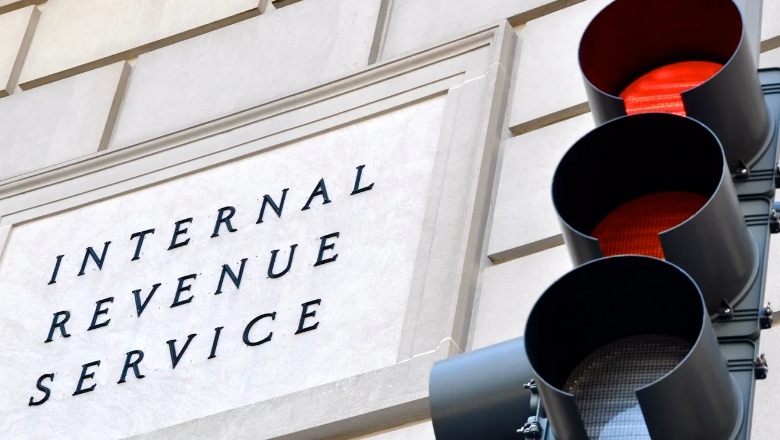The Internal Revenue Service (IRS) is preparing to distribute a staggering $2.4 billion to approximately one million taxpayers who missed out on claiming a Recovery Rebate Credit in 2021. Eligible individuals could receive payments of up to $1,400 in the coming weeks, either through direct deposit or as paper checks.
This financial windfall stems from the IRS’s effort to rectify unclaimed stimulus payments from the COVID-19 pandemic. Many taxpayers either did not claim the Recovery Rebate Credit on their 2021 tax returns or left the field blank, inadvertently missing out on a payment they were entitled to receive.
To qualify for this payment, taxpayers must meet specific criteria:
- Filed a 2021 Tax Return: The IRS identified individuals who filed a return but did not claim the Recovery Rebate Credit, even though they were eligible.
- Missed or Underpaid Stimulus Payments: This includes people who either didn’t receive a stimulus check during the third phase of the pandemic relief or received less than the full amount owed.
Taxpayers do not need to take any additional steps if they meet these criteria. The IRS has confirmed that it will automatically issue the payments based on the most recent banking or mailing information on file.
For those who still haven’t filed their 2021 tax returns, there’s good news. Eligible individuals can submit a return and claim the Recovery Rebate Credit before the filing deadline on April 15, 2025, to qualify for the payment.
The IRS has stated that payments will be distributed either as direct deposits to bank accounts or as paper checks mailed to the address provided on the most recent tax return. Eligible recipients should expect their payments to arrive by late January 2025.
IRS Commissioner Danny Werfel emphasized the agency’s commitment to ensuring that all qualifying taxpayers receive the money they are owed. “This disbursement is part of our ongoing effort to provide relief to Americans who may have missed out on stimulus payments during the pandemic,” Werfel said in a statement.
The distribution of these payments comes nearly five years after the CARES Act, which authorized the stimulus payments, was signed into law. The delay has raised questions about why it has taken the IRS so long to address these unclaimed payments.
During the pandemic, the federal government distributed three rounds of stimulus checks, amounting to $814 billion. However, outdated technology and bureaucratic inefficiencies made the process challenging, leaving thousands of Americans without the funds they were due.
Werfel acknowledged these shortcomings, stating, “The pandemic exposed significant gaps in our systems, and we’re working hard to close them. While it’s unfortunate that these payments are coming late, our priority is making sure taxpayers receive what they’re entitled to.”
For those wondering if they qualify, the IRS recommends checking their 2021 tax return. If the Recovery Rebate Credit field was left blank and no corresponding stimulus payment was received, they are likely eligible.
Taxpayers who have not yet filed a 2021 return should do so as soon as possible to claim the credit. Filing can be completed online through the IRS’s Free File system or with the help of a tax professional.
The federal government’s stimulus payments were a lifeline for millions of Americans during the COVID-19 pandemic, helping to stabilize household finances amid economic uncertainty. However, the rollout was marred by issues, including delays, incorrect payments, and confusion about eligibility requirements.
The first round of payments, authorized under the CARES Act in March 2020, provided up to $1,200 per adult and $500 per dependent child. Subsequent rounds increased the amounts and expanded eligibility, ultimately delivering $814 billion to households across the country.
Despite these efforts, many eligible Americans were overlooked, either due to errors in IRS records or a lack of awareness about the Recovery Rebate Credit. The current disbursement aims to correct these oversights, ensuring that no taxpayer is left behind.
The upcoming distribution of Recovery Rebate Credit payments represents a significant step in addressing the lingering issues from the pandemic-era stimulus programs. For eligible taxpayers, this unexpected financial relief could make a meaningful difference.
If you believe you might qualify, review your 2021 tax return or consult with a tax professional. With the IRS taking steps to ensure these payments reach those who deserve them, it’s crucial to act before the April 2025 deadline if you haven’t already filed.
In the meantime, taxpayers can expect to see payments arriving by late January 2025, offering a reminder of the government’s ongoing effort to rectify pandemic-era financial disparities.




1 Comment
Step up illegals. Ya really think anyone in the Biden admin. is aware?